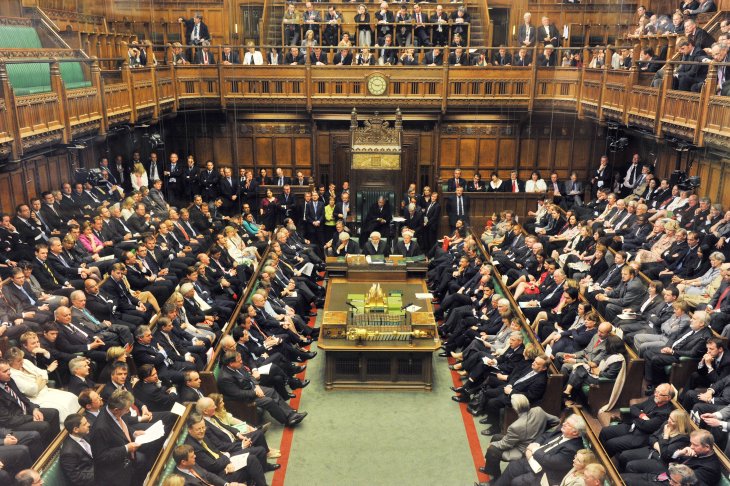Lee Jarvis and Tim Legrand report on their research into how the UK Parliament debates whether or not to extend its list of proscribed terrorist organisations that is based on their article ‘I am somewhat puzzled’: Questions, audiences and securitization in the proscription of terrorist organizations’ published in Security Dialogue Vol 48, Issue 2, 2017

By UK government [OGL 3 (http://www.nationalarchives.gov.uk/doc/open-government-licence/version/3)], via Wikimedia Commons
Parliamentary scrutiny?
Although Parliament must debate the banning of any additional terrorist organisation, many commentators are sceptical about its significance in scrutinising or checking executive power, at least in this context. When looking at the relevant debates, it is striking that the opposition (irrespective of party allegiance) typically acclaims the importance of political unity in matters of national security, perhaps signalling the legislature’s subservience to the executive. Indeed, Parliament has – to date – always agreed to the addition of new organisations to this list, even where MPs are unfamiliar with the specific organisations being banned, or the consequences of this decision.
Questioning the executive
In a recent paper published in Security Dialogue – titled ‘I am somewhat puzzled’: Questions, audiences and securitization in the proscription of terrorist organizations’ – we attempt to delve a little further into the dynamics of these debates. We argue that although parliamentarians rarely challenge the legitimacy or appropriateness of this ‘heavy power’, they do use these debates as an opportunity to ask a range of questions of the executive as it goes about its attempt to ban additional organisations.
These questions, we argue, fall into a distinctive repertoire of five types. These include questions of timing: ‘why is the move to proscribe those two organisations only taking place now?’ asked Nick Clegg of Jammat-ul Mujahideen Bangladesh and Tehrik Nefaz-e Shari’at Muhammadi in 2007, as well as questions of criteria, for example: ‘What triggered the Government’s view that the organisation should be proscribed?, as Simon Hughes asked of Jemmah Islamiyah in a 2002 debate. Other questions focus upon more obviously procedural issues around the mechanics and consequences of proscription for banned organisations – for instance ‘Which minister decides on proscription?’ (Douglas Hogg, 2002); as well as questions relating to other groups that might (also) have been banned. As John Redwood asked in a 2006 debate, for example: ‘How many organisations that are as bad as the ones that we are proscribing today should be proscribed?’
Parliamentary questions matter
Our argument, in the paper, is that questions such as these matter because they function as demands on the executive to variously justify, explain, elaborate, clarify and reflect on the scope of its decision to bring forward a group for proscription. This is important, because they suggest a less supine role for Parliament than the image which emerges if we focus only on the final instance of its acceptance or rejection of the government’s wishes. This also has implications, we suggest, for established theories of security politics, especially securitization theory, which tends to limit the role of the ‘audience’ in security dramas to the moment of decision-taking. Rather than simply affirming or denying the executive’s request (and it is always affirmed), parliamentarians use these debates as an opportunity to ask the executive to account for the nature of the threat that is faced, as well as the proposed response to that threat in the form of proscription.
Lee Jarvis is Reader in International Security at the University of East Anglia. His recent books include (with Michael Lister) Anti- Terrorism, Citizenship and Security (Manchester University Press, 2015), (with Jack Holland) Security: A Critical Introduction (Palgrave Macmillan, 2015), (with Michael Lister) Critical Perspectives on Counter- Terrorism (Routledge, 2015) and (with Christopher Baker-Beall and Charlotte Heath-Kelly) Counter- Radicalisation: Critical Perspectives (Routledge, 2015).
Tim Legrand is a Lecturer at the National Security College at the Australian National University. His research agenda spans international policy transfer, transgovernmentalism, crisis management and the governance of national security in Australia, the UK and the USA. He is the co-editor (with Allan McConnell) of Emergency Policy: Global Influences on National Crisis Management (Ashgate, 2013).